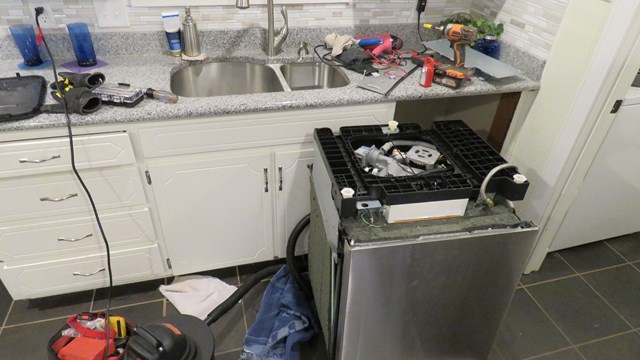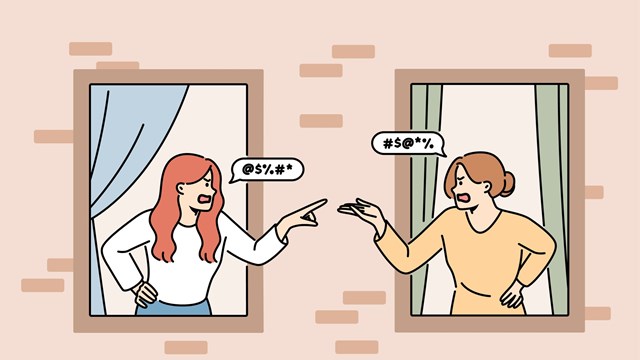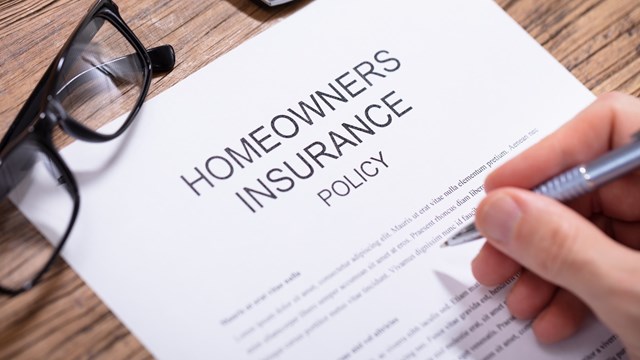No one likes it when a neighbor has an ongoing renovation project that lasts for months on end, especially when the renovations may cause damage to your own apartment. Luckily, most buildings have a mechanism in place to fix this: the alteration agreement.
Starting the Process
When shareholders approach the prospect of a large-scale renovation, they should be prepared to meet with board members and building managers to negotiate the terms of the renovation as well as the plans themselves.
“If it’s major, you would consult with an architect or engineer first to draw up plans, then plans and specifications become guidelines for what needs to be done,” says Geoff Mazel, a partner with the Manhattan-based law firm of Hankin & Mazel, PLLC. “Then they are reviewed by the board, which may have their own architect or engineer make sure the plans don’t compromise anything in the building.”
Once plans are presented to a board, usually a contract called an alteration agreement is signed between the management company and/or the board and the shareholder.
“Alteration agreements are contracts between the shareholder and the building in which the shareholder is promising to do everything according to the law and code, and that building will not be damaged by the renovation,” says C. Jaye Berger, an attorney and principal with the Law Offices of C. Jaye Berger in Manhattan. “The shareholder cannot begin work without approval.”
The Agreement Itself
Because alterations can be common among co-ops and condos, many buildings have a generic alteration agreement already in place.
“Usually the board will have a general alteration agreement already prepared by their attorney, which will have a start and end date for projects and hours,” Mazel says. “Because if someone is renovating a house, people won’t care how long it takes. But if it’s an apartment and the alteration takes six months, it’s not fair to the neighbors.”
However, as most alterations are not exactly the same, the board or management company and the shareholder can work within the parameters of the alteration agreement to include minor details that apply to the renovation.
“There may be certain little tweaks they’ll make because of an alteration, but if someone is doing a large renovation with cranes for example, there may be extra things the building puts into an agreement to cover those concerns,” Berger says. “General provisions are probably already worked out though.”
However, there is no legal requirement for an alteration agreement to exist between a building and a resident wanting to complete a large-scale renovation. “There is no legal requirement that they have to draft an alteration agreement but the building that doesn’t consider it is being very short-sided and playing with fire,” says Attorney Bruce A. Cholst, a partner with the Manhattan-based law firm of Rosen Livingston & Cholst LLP. “When you share a common roof, all the apartments are intertwined.”
As a result, Berger says that some buildings do not have a formalized alteration agreement.
“There are still certain buildings that don’t have them though,” she says. “They have to start putting that stuff together upon request. It happens more often than you imagine.”
Playing By the Rules
Once a time limit is set by an alteration agreement, it is expected that the project follows as close as possible to the timeline set out in the agreement. However, if a project runs longer than expected, shareholders can apply for an extension of the agreement.
“Residents can ask for an extension, the board can consider it, but the board is not required to say ‘yes,’ ” Cholst says. “The problem the board has in granting an extension is that they’re setting policy and precedent that any future extension in the same circumstances must be granted—they must think carefully about granting extensions.”
Cholst says that once alteration agreements are finalized, however, they must stick to their decision.
“Courts have been very hard on boards—once they do an alteration [agreement], you’re stuck with it,” he says. “If the board says ‘yes,’ the board and the neighbors are stuck with the condition.”
Cholst says the legal constraints for a homeowner’s board are greater in a co-op lease. “The typical co-op lease says that a board cannot ‘unreasonably withhold or delay’ its approval of an alteration by application of shareholder,” Cholst says. “The board can’t arbitrarily say ‘no’ without reason.”
However, Cholst says although reasoning is required upon rejecting alteration plans, there is a “very low standard” of reasoning required by building owners to reject a plan.
“They have to show that the rationale for rejecting the plan is in the building’s best interest, but they don’t even have to be right,” he says.
A common reason that boards reject co-op and condo alterations is for “wet over dry construction,” for example, the construction of a bathroom or kitchen over a living room or non-plumbing related area. Cholst says this type of construction increases the risk of water damage to neighboring apartments.
Leases for condos give boards much more leeway as boards can reject an alteration proposal for no reason. However, boards must act quickly in delivering a decision. Cholst notes that most bylaws indicate that if the board takes no action on a project within 30 days of its submission, shareholders can assume that the project has been approved.
“Condos have more power in theory but must be mindful of the deadline,” Cholst says. He adds that the board can also strike a compromise—approve the project but adopt appropriate guidelines in the alteration agreement that the owner has to agree to.
Other Considerations
For alterations that involve the combination of two apartments, Mazel says the shareholder can usually expand and own both apartments.
“Most co-ops will agree to the combining of two apartments—it’s a value added alteration—it raises the profile of the building,” Mazel says. Therein, the shareholder will own the combined apartment with the shares equal to the sum of both units.
To ensure that there is not damage done to neighboring apartments during construction, some boards require the alteration shareholder to pay a deposit prior to construction to account for any damage that may occur during the renovation. The deposit can also serve as a reminder of the time limit on a project, and can be revoked if the terms of the alteration agreement are broken by the shareholder.
“In order to immediately remediate any damage done, a security deposit should be set by the building,” Cholst says. “Alterations and projects have a way of taking on a life of their own and linger forever, and nothing ticks off a neighbor like being exposed to a construction site for more than a few months. You have to be realistic about how long it will take.”
Berger says that management companies have different ways of handling pre-construction deposits and agreements.
“I have to say there is a difference of opinion of how they handle it, they must handle it in a systematic way,” Berger says. “Some may require a security deposit to protect damage to neighbors; some even photograph neighbors’ apartments prior to construction.”
Berger says that it is very important for neighbors to document their apartment condition prior to their neighbors’ construction.
“Neighbor damage is a common thing that people face,” she says. “A pre-construction survey is very important; some buildings do not pay enough attention to carrying out the alteration agreement.”
Berger says it is also important for the shareholder to monitor the course of the project themselves, rather than relying on the building’s inspectors to ensure that the project is being carried out as per the alteration agreement.
“The building managers are not your own construction managers,” Berger says. “They’re not wearing the hat of a construction manager—they’re just trying to protect the building’s interests, not your own.”
There are different types of renovations that can be done in apartments, some of which fall under the category of an alteration agreement, and some that do not.
Mazel says alteration agreements are usually required for larger-scale renovations that could change the structure of the building.
“Certainly alterations that affect the structural integrity of the building or require New York City permits, licenses, electrical, plumbing, or when you are moving walls—things like that require alteration agreement approval,” Mazel says.
With larger scale projects, boards can reject construction for a variety of reasons.
“If the plan is not structurally sound, compromises the building or affects common areas of the building, they can turn it down,” Mazel says. “Maybe the work is too extensive and would interrupt other people living in the building. But usually if plans are sound and prepared by a professional, they will be approved.”
Smaller-scale renovations that do not affect the structure of the building usually do not require alteration agreement approval.
“Cosmetic things, such as painting, carpeting and light fixtures don’t usually require co-op or condo approval,” Mazel says. “But there could be a large gray area in between.”
Mazel says as a result, alteration proposals are usually handled on a case-by-case basis.
“For owners, when in doubt, submit an alteration agreement so that you don’t subject yourself to fines, penalties, or having to redo the work,” he says.
Rosie Powers is a freelance writer and a frequent contributor to The Cooperator










3 Comments
Leave a Comment